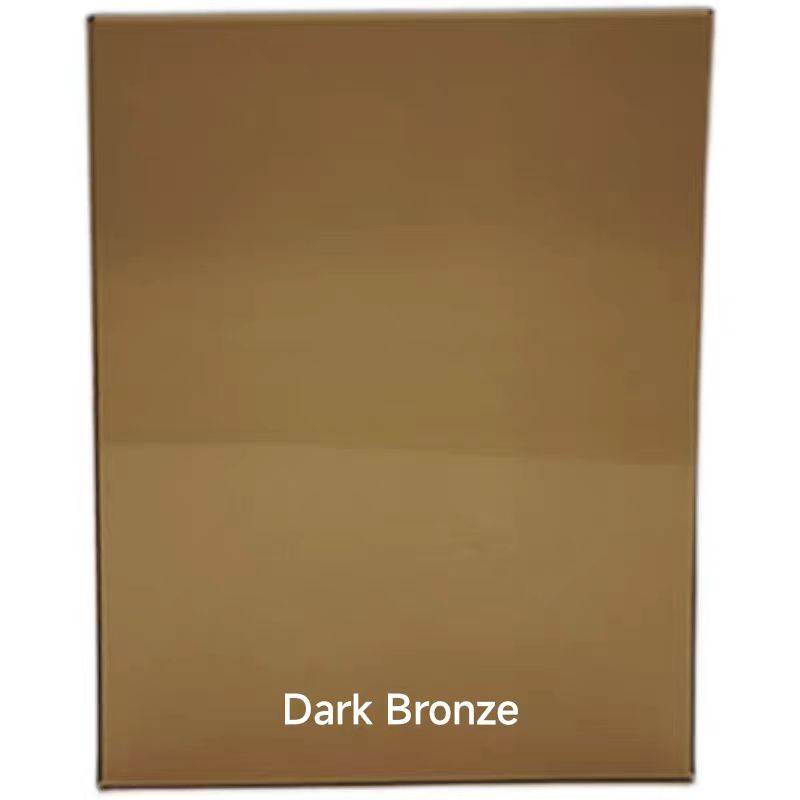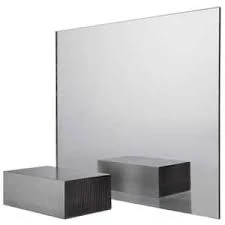In the world of interior design, mirror glass has emerged as an essential element that can significantly transform a space. Its multifaceted nature allows for both aesthetic appeal and functional enhancements. Purchasing mirror glass, however, requires a blend of knowledge and expertise to ensure your investment pays off in both the short and long term. Let's delve into the nuances of buying mirror glass, drawing from expert insights and industry standards.

Firstly,
understanding the different types of mirror glass is crucial. Not all mirrors are created equal, and selecting the right type for your needs is a fundamental step. There are several varieties, including standard silver mirrors, low iron mirrors, and tinted mirrors. Standard silver mirrors are the most common, providing a consistent reflection suitable for everyday use. Low iron mirrors, devoid of the greenish tint found in standard mirrors, offer brighter and clearer reflections, ideal for spaces where pristine clarity is desired. Tinted mirrors, on the other hand, are perfect for adding a stylish and unique touch to any setting, available in hues like bronze, grey, or blue.
The quality of the mirror glass you choose significantly impacts both durability and performance. Expert manufacturers emphasize the importance of thickness. A 4mm or 6mm thickness is typically recommended for residential use, ensuring sturdiness and longevity. In contrast, commercial spaces might require sturdier options, with thicknesses ranging up to 10mm or more to withstand higher traffic and potential impact.

When considering the purchase, one must assess the application and location of the mirror. For example, in humid environments like bathrooms, opting for moisture-resistant mirror glass is advisable to prevent corrosion and maintain longevity. A protective coating or backing can further enhance resilience against environmental factors, ensuring your mirror glass remains pristine over time.
Mirror glass customization offers an avenue for tailoring specifically to aesthetic and functional requirements. Custom cuts, beveling, and edge treatments are just a few options that can elevate the typical mirror into a design centerpiece. Engaging with reputable manufacturers or suppliers who offer customization services can provide a significant advantage, ensuring a perfect fit and finish for your space.
buy mirror glass
The installation process is another critical factor. Professional installation guarantees safety and accuracy, preventing potential hazards or misalignments that might detract from the mirror's visual appeal and functionality. For those inclined towards DIY projects, a comprehensive understanding of the installation process, including the appropriate adhesives and mounting techniques, is essential to avoid common pitfalls.
Furthermore, sustainability is becoming increasingly important in product selection. Choose mirror glass that aligns with environmental standards. Many manufacturers now offer eco-friendly options with lower emissions and energy efficiency in mind. This not only contributes positively to the environment but can also enhance the credibility and reputation of your property as eco-consciousness continues to gain importance among consumers and stakeholders.
To ensure credibility and avoid unauthorized purchases, always buy from trusted suppliers who can certify the origin and quality of their mirror glass. Reviews and testimonials from previous customers provide invaluable insights into customer satisfaction and reliability, enhancing your confidence in the purchase.
In summary, buying mirror glass is not merely about picking the reflective surface that fits your decorative desires. It involves a layered understanding of types, quality, application, customization, installation, and sustainability. By harnessing expertise and authoritative knowledge, you can make informed decisions that blend beauty with durability, ensuring your mirror glass serves as both a functional element and a stylish highlight in your environment.



